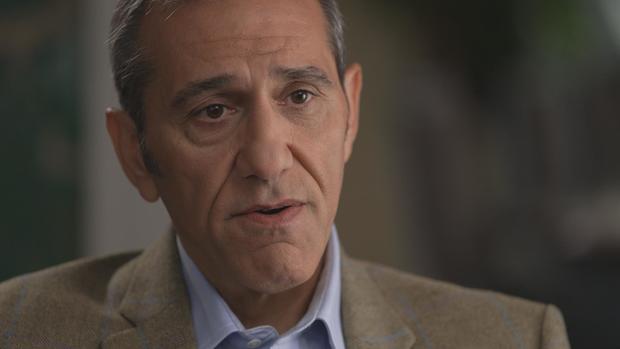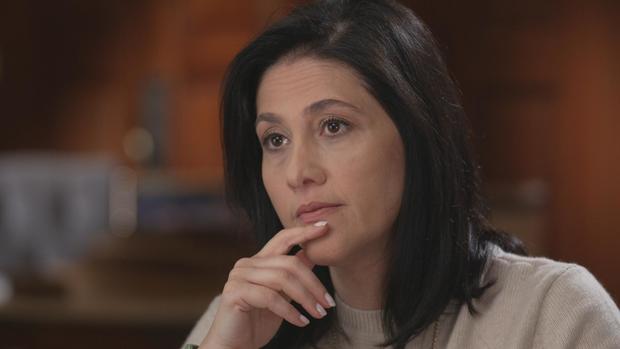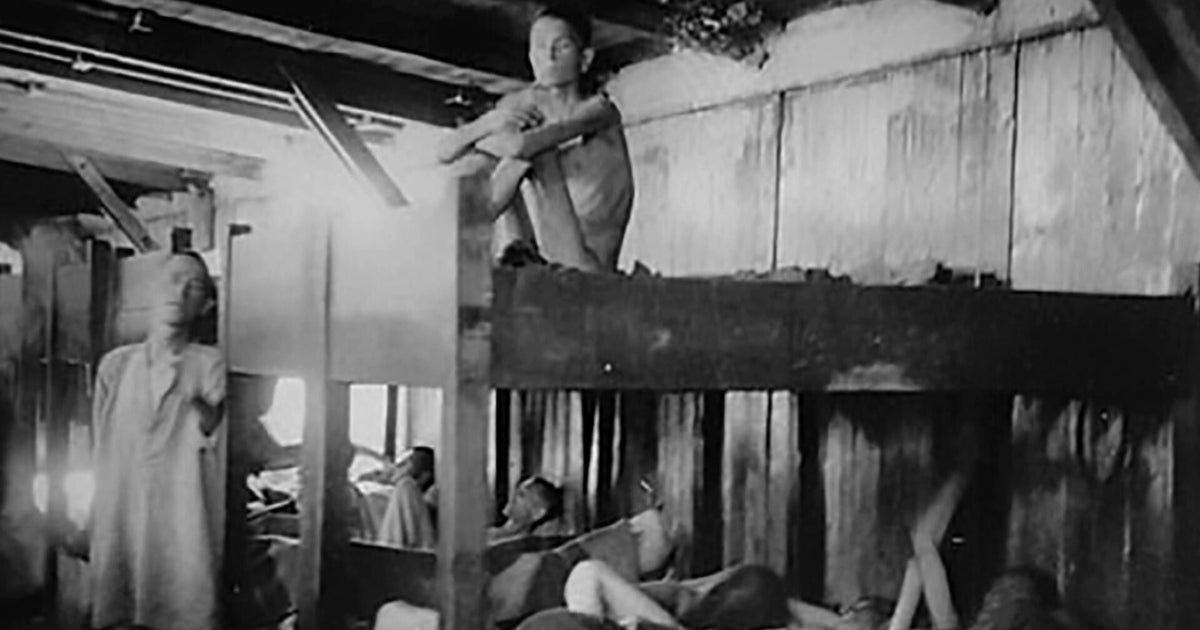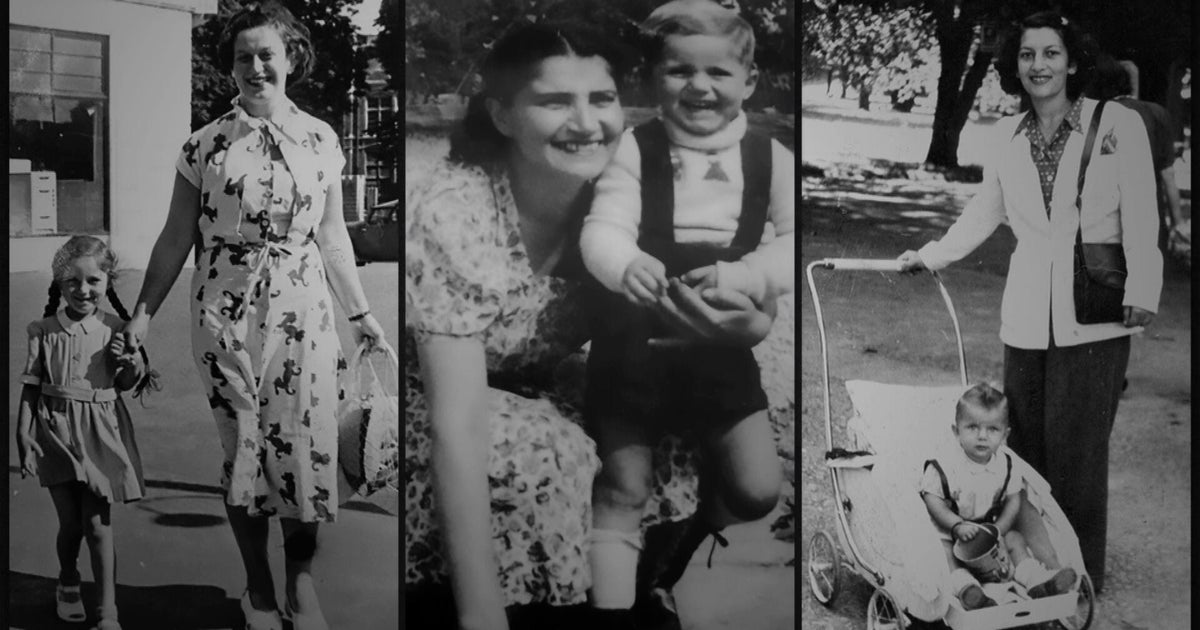American freed in Iran deal warns hostage taking "won't end with us"
An American dad who'd been imprisoned on what he calls "ludicrous" charges in Iran before a prisoner swap deal brought him home wants to move on from that chapter in his life, but not without sharing a warning about his harrowing experience.
On Sept. 18, the U.S. reached a deal with Iran to release billions in frozen Iranian funds in exchange for freeing Emad Shargi and four other Americans who had been detained in Iran. The deal has faced an onslaught of scrutiny and criticism in the wake of Hamas' deadly Oct. 7 attack on Israel. Hamas, which the U.S. designates as a terrorist organization, has historically maintained strong ties with Iran.
"Hostage-taking didn't start with us and it won't end with us," Shargi said. "It is incumbent upon us in the United States and in Europe to come up with policies that stops innocent people being taken as hostages. And those policies need to be stronger than sanctioning somebody."
Why was Shargi in Iran?
Shargi, a dual citizen of the U.S. and Iran, spent much of his childhood in Tehran, where he was born, but he went to college, met his wife and started a business in the U.S. He worked representing U.S. chemical companies in the Middle East.
In 2016, with their daughters off to college, Shargi and his Iranian-American wife, Bahareh, decided to return to Iran. A nuclear deal had been reached with Iran the year before, which made Shargi think the country was full of opportunity. His father thought otherwise.
"He said to me, 'Emad, you don't know this country. People like you with dual nationalities, they pick these people up once in a while for whatever use they have for them,'" Shargi recalled. "And I said, 'Dad, give me a break, you know. I've never been in the U.S. government. Nothing.'"
Shargi and his wife, both in their 50s, began spending a lot of time in Iran. He didn't foresee what would happen to him on April 23, 2018, when more than a dozen armed agents showed up at the couple's Tehran home.
What happened to Shargi after he was detained?
The armed agents left Shargi's wife behind, but took him to 2A, a special ward in Iran's feared Evin Prison. The intelligence division of the Islamic Revolutionary Guard Corps. runs the unit.
"They took me to a room. They told me to strip naked. They gave me some blue garbs," Shargi said. "They told me, 'This is the end of the line for you, and most likely you'll never see the outside world.'"
Shargi was given a code number instead of his name: 97-0-10.
"They take you to a very small room and then they throw a giant of a human being in there, who proceeds to hit you, to push you around, to threaten to kill you," Shargi said. "And then the good cop comes in, and he says, 'Look, I can put a stop to this. You just need to confess.'"
Shargi says he didn't have anything to confess. He believes he was taken because he was American and Iran wanted to extract a price from the U.S. Shargi was questioned for hours each day for eight months, but he was suddenly released on bail in December of 2018.
His wife, who was not arrested, was able to leave Iran. Shargi says he got a letter of exoneration and expected he would be allowed to join his wife, but he wasn't allowed to leave.
Then Shargi's story took a turn for the worse. His file was sent to the Revolutionary Court, where Judge Abolqasem Salavati, also known as the hanging judge, sits. In November 2020, the judge sentenced Shargi to 10 years in prison under a broadly-worded statute, which prohibits cooperating "by any means" with foreign states against Iran.
Before Shargi had to report back to prison, a friend of his came up with an escape plan. Smugglers helped Shargi make his way to Iran's mountainous border with Kurdistan. But Shargi's luck ran out about 30 miles from freedom.
An armed Iranian patrol looking for someone else found him.
"It was just the bad timing, but now we have round two of incarceration," Shargi said.
He went through another eight months of interrogation.
"All of those times, there was never a doubt in my mind that my government would get me out. That was my hope," he said.
Negotiations for Shargi's release
Back in Washington, Shargi's family had begun a public campaign for his release. They also sought help from the State Department, which reviewed Shargi's case and determined he was wrongfully detained. The Biden administration was trying to negotiate the release of American detainees in Iran and also trying to renew the Iran nuclear deal, which the Trump administration had pulled out of. The talks stalled.
Shargi's sister, Neda, called Iran's mission to the United Nations and asked to meet with its top diplomat, Amir Saeid Iravani. She wanted to know what was holding up the talks to free the American prisoners in Iran. She said Iravani acknowledged to her that there were people in Iran's own government who didn't want the deal to happen.
"Just as there are people in our government who didn't want this to happen," she said. "You know, we're dealing with innocent human lives, and we want to rectify the situation. But for other people, it's politics and it's power. And they get in the way."
Neda also found a way to speak with President Biden, introducing herself to him after he spoke at a Persian New Year reception earlier this year.
"I told him they are American citizens who are innocent and need to come home as soon as possible, because time is not on our side," she said.
Shargi's return to the U.S.
The prisoner deal was finally done on Sept. 18. Mr. Biden granted clemency to five Iranians accused of nonviolent crimes. Five Americans, including Shargi, were released by Iran. Six billion dollars of Iranian oil revenue that had been tied up in a hard-to-access South Korean bank due to U.S. sanctions was transferred to an account in Qatar, supervised by the U.S. Treasury. Iran can use the money to buy humanitarian goods, like food and medicine. The U.S. has to approve each transaction and the money goes to suppliers, not the government of Iran.
The released American prisoners were flown to Qatar and then to a military base in Virginia where their families were waiting for them.
"I hadn't seen my daughters for five and a half, six years," Shargi said. "I had missed all their graduations, birthdays, anniversaries with my wife. It's like being born again. We had thought we were going to be freed so many times, and this was it."
Less than three weeks after the prisoners' release, Hamas attacked Israel. Some members of Congress have called for the U.S. to block Iran's access to the $6 billion because Iran is a major financial supporter of Hamas.
Shargi said he's been unable to watch the television news about the Israel-Hamas war, but he has read about it. More than 200 people are believed to be hostages of Hamas in Gaza, including some Americans.
"I cannot imagine what it must feel like to have your daughter, your son, your wife, your father being taken hostage," he said. "And I cannot believe what the families are going through. I just wish them a safe return home."







